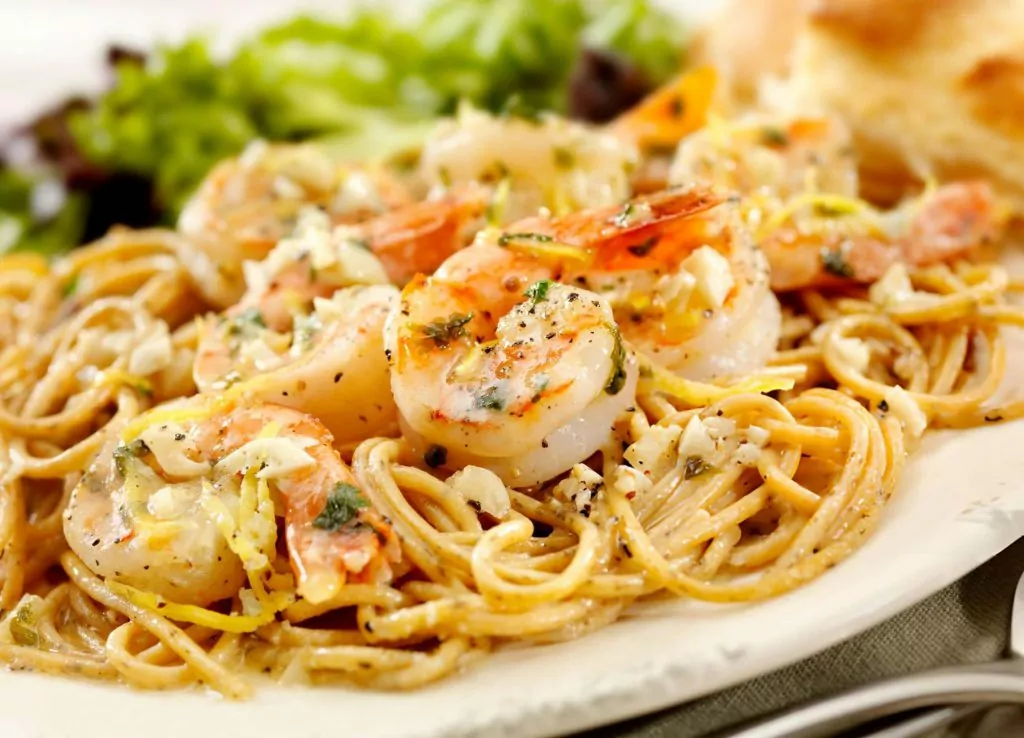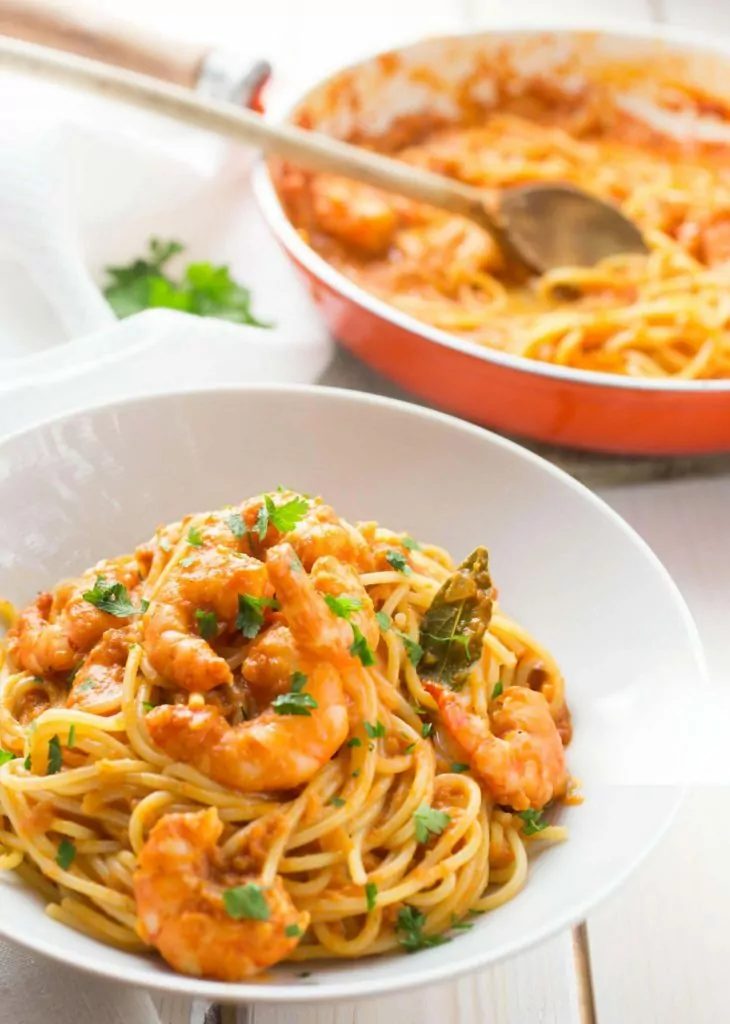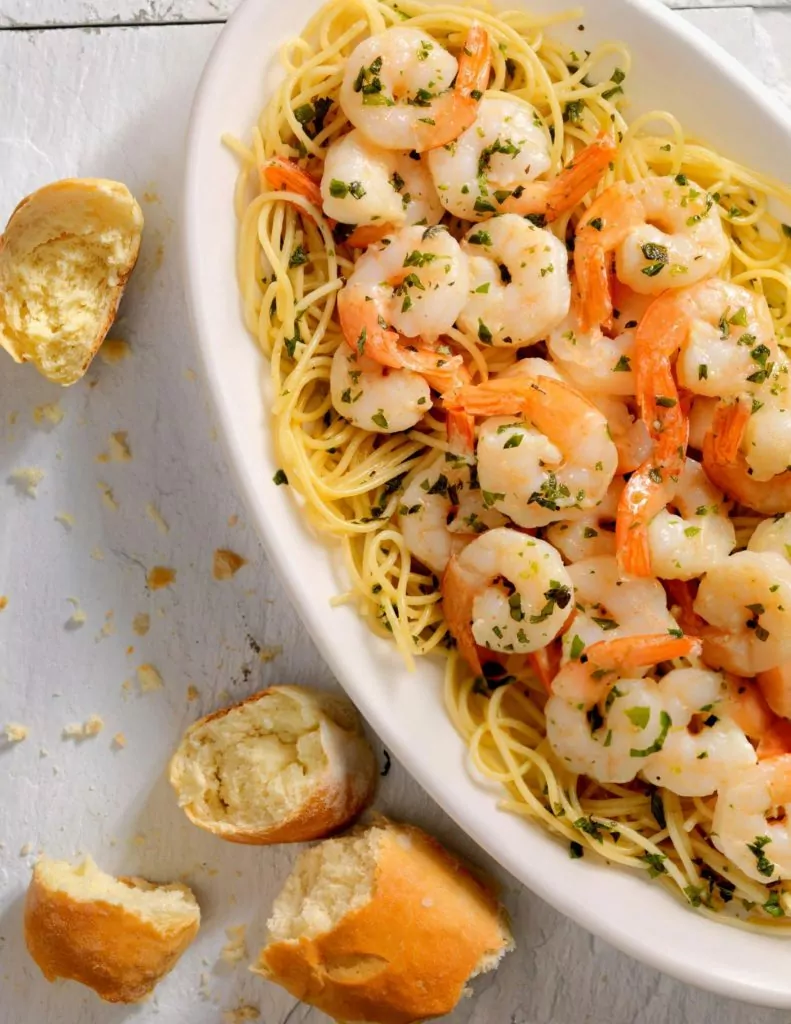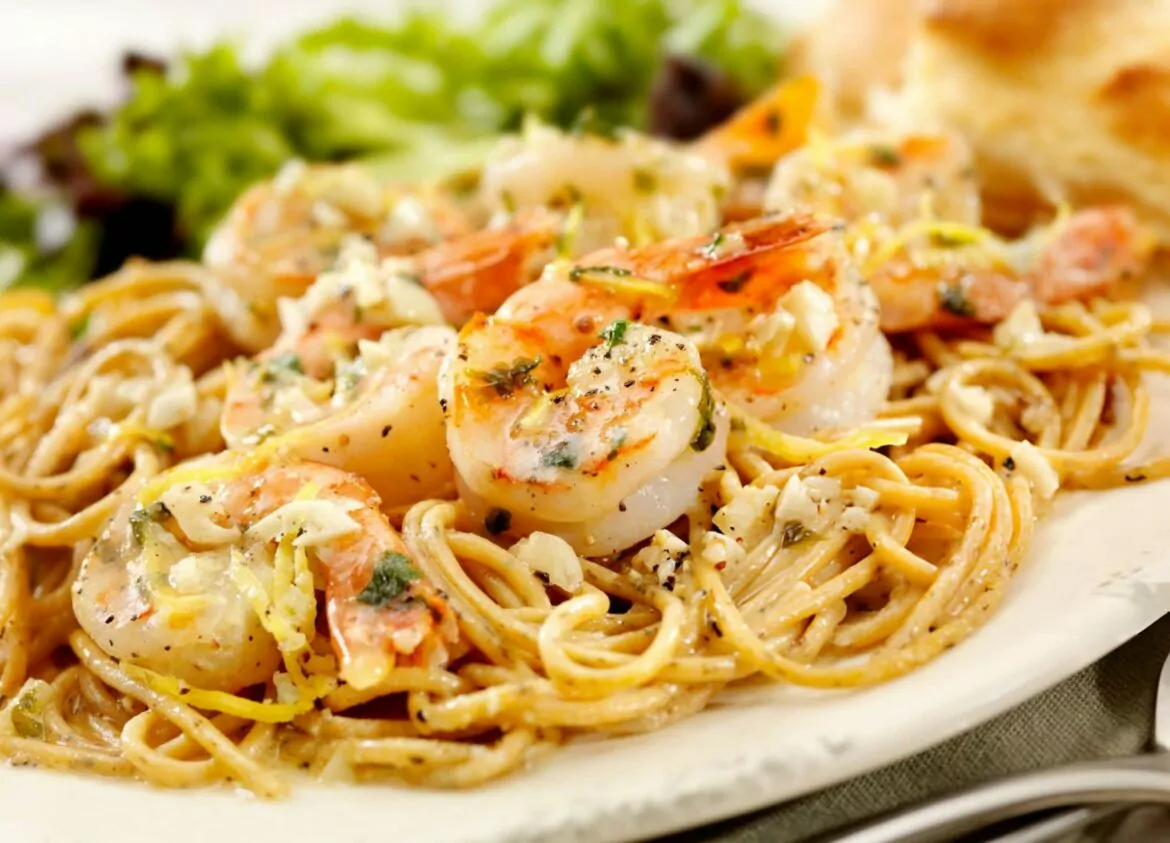Shrimp Scampi with Pasta is a classic dish that combines succulent shrimp, aromatic herbs, and pasta in a light yet flavorful sauce. This dish is beloved for its ability to deliver gourmet flavors with straightforward preparation, making it an ideal choice for both weeknight dinners and special occasions.

Overview of Shrimp Scampi with Pasta
A staple in Italian-American cuisine, Shrimp Scampi is traditionally made by sautéing shrimp in a garlicky butter and white wine sauce, often finished with a splash of lemon juice for added zest. When paired with linguine, the sauce clings to each strand of pasta, ensuring that every bite is infused with flavor.
Essential Ingredients Explained
The success of this dish hinges on the quality and freshness of its components. Shrimp, as the star ingredient, should be fresh or well-thawed, while linguine offers a perfect texture to complement the sauce. Fresh parsley not only adds color but also a burst of fresh flavor that brightens the entire dish.
Step-by-Step Cooking Guide
From preparing the linguine to the art of deglazing with white wine and lemon juice, this section covers all the crucial steps to ensure your Shrimp Scampi with Pasta turns out perfectly every time.
Recipe Tips & Frequently Asked Questions
- Best practices for selecting and preparing shrimp
- How to prevent overcooking the pasta
- Adjusting heat levels in cooking to maintain flavors
- Substitutes for White Wine
- Making the Dish Gluten-Free or Low-Carb
- Storing and Reheating Leftovers

What to Serve With This Recipe
Explore complementary side dishes and the best wine pairings for Shrimp Scampi, enhancing the overall dining experience.
Perfecting the Presentation
Learn plating techniques and the final touches that can transform your dish into a visually stunning meal.
This Shrimp Scampi with Pasta recipe is not only about enjoying a delicious meal but also about embracing the joy of cooking. Experiment with different herbs or a splash of cream to make this dish your own, and don’t forget to share your culinary creations and experiences with others, inviting them to explore the pleasures of homemade gourmet dining.

Ingredients:
- 2 shallots, finely diced
- 1 pound shrimp, peeled and deveined
- 1 lemon, juiced
- 2 cloves garlic, minced
- ½ cup dry white wine
- 1 (16 ounce) package linguine pasta
- 1 pinch red pepper flakes (optional)
- ¼ cup finely chopped fresh parsley leaves
- 4 tablespoons butter, divided
- 4 tablespoons extra-virgin olive oil, divided
- 1 teaspoon extra-virgin olive oil, for drizzling
- Kosher salt and freshly ground black pepper, to taste
Instructions:
First, arrange all the necessary ingredients in various bowls and cups for easy access during cooking.
Start by boiling a large pot of salted water. Add the linguine and cook until it’s nearly tender, about 6 to 8 minutes. Once done, drain the pasta and set it aside.
In a large skillet, combine 2 tablespoons of butter with 2 tablespoons of olive oil and heat over medium. Once the butter melts, add the diced shallots, minced garlic, and red pepper flakes. Stir the mixture frequently until the shallots become translucent, typically taking 3 to 4 minutes.
Using tongs, gently stir the mixture as you season the shrimp with kosher salt and black pepper. Add the shrimp to the skillet and cook until they turn pink, which should take about 2 to 3 minutes. Remove the shrimp from the skillet and keep them warm.
Next, pour the white wine and lemon juice into the same skillet. Increase the heat to bring the mixture to a boil, making sure to scrape off the browned bits from the bottom of the skillet with a wooden spoon. This deglazing process is crucial for enhancing the flavor.
Add another 2 tablespoons of butter to the skillet and stir in an additional 2 tablespoons of olive oil. Let the mixture simmer briefly to combine the flavors.
Finally, toss the linguine, cooked shrimp, and chopped parsley in the skillet with the butter and olive oil mixture until everything is well-coated. Adjust the seasoning with additional salt and black pepper if needed. Drizzle with a teaspoon of olive oil just before serving.

Shrimp Scampi with Pasta Recipe
Ingredients
- 2 shallots finely diced
- 1 pound shrimp peeled and deveined
- 1 lemon juiced
- 2 cloves garlic minced
- ½ cup dry white wine
- 1 16 ounce package linguine pasta
- 1 pinch red pepper flakes optional
- ¼ cup finely chopped fresh parsley leaves
- 4 tablespoons butter divided
- 4 tablespoons extra-virgin olive oil divided
- 1 teaspoon extra-virgin olive oil for drizzling
- Kosher salt and freshly ground black pepper to taste
Instructions
- First, arrange all the necessary ingredients in various bowls and cups for easy access during cooking.
- Start by boiling a large pot of salted water. Add the linguine and cook until it’s nearly tender, about 6 to 8 minutes. Once done, drain the pasta and set it aside.
- In a large skillet, combine 2 tablespoons of butter with 2 tablespoons of olive oil and heat over medium. Once the butter melts, add the diced shallots, minced garlic, and red pepper flakes. Stir the mixture frequently until the shallots become translucent, typically taking 3 to 4 minutes.
- Using tongs, gently stir the mixture as you season the shrimp with kosher salt and black pepper. Add the shrimp to the skillet and cook until they turn pink, which should take about 2 to 3 minutes. Remove the shrimp from the skillet and keep them warm.
- Next, pour the white wine and lemon juice into the same skillet. Increase the heat to bring the mixture to a boil, making sure to scrape off the browned bits from the bottom of the skillet with a wooden spoon. This deglazing process is crucial for enhancing the flavor.
- Add another 2 tablespoons of butter to the skillet and stir in an additional 2 tablespoons of olive oil. Let the mixture simmer briefly to combine the flavors.
- Finally, toss the linguine, cooked shrimp, and chopped parsley in the skillet with the butter and olive oil mixture until everything is well-coated. Adjust the seasoning with additional salt and black pepper if needed. Drizzle with a teaspoon of olive oil just before serving.



